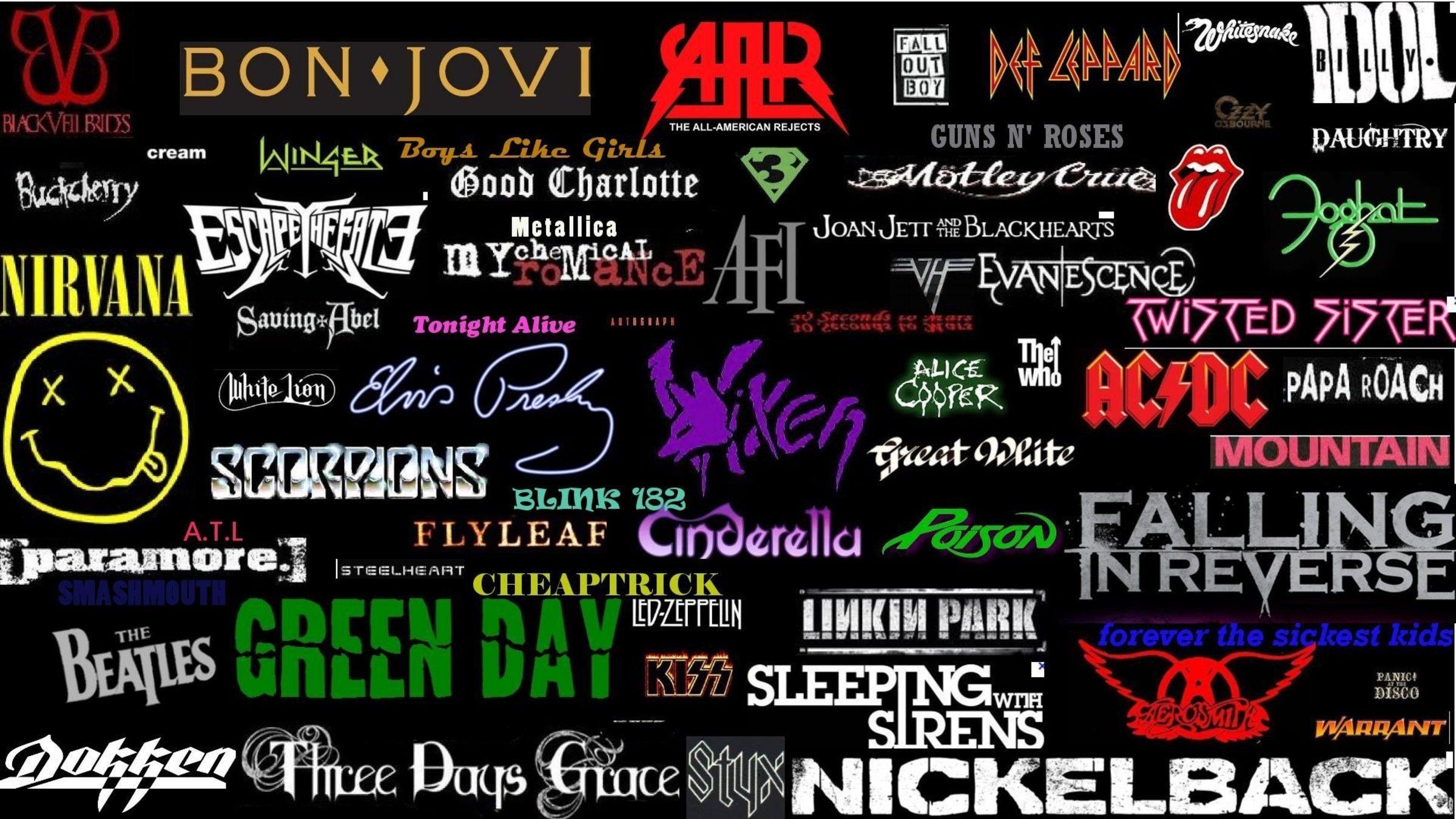Rock Band 90s: The Era That Shaped A Generation
Remember when grunge was king, hair metal was dying, and every teenager had a Nirvana poster on their wall? The 90s rock band scene wasn’t just music—it was a movement. It was raw emotion, rebellion, and authenticity rolled into one. If you’ve ever wondered why the 90s rock era still resonates with fans today, you’re about to dive deep into its heart and soul.
The 90s was more than just a decade; it was a cultural revolution. Bands like Nirvana, Pearl Jam, and Green Day took the world by storm, redefining what rock music could be. This era wasn’t just about catchy riffs or powerful vocals—it was about telling stories that mattered. It was about connecting with an audience that felt misunderstood and giving them a voice.
From the grunge explosion in Seattle to the rise of alternative rock, the 90s brought us some of the most iconic bands in music history. But what made these bands so special? And why does their music continue to inspire new generations? Let’s explore the magic of 90s rock bands and uncover the secrets behind their timeless appeal.
- Drake Dick Pic The Hype The Truth And Everything In Between
- Jerry Solomon The Man Who Left An Indelible Mark On The World
Table of Contents
- Introduction to 90s Rock Bands
- The Grunge Movement: Nirvana and Beyond
- Alternative Rock: The Rise of Radiohead and Muse
- Punk Revival: Green Day and Blink-182
- Nu-Metal: Korn, Limp Bizkit, and Slipknot
- Key Figures in 90s Rock
- Impact on Culture and Society
- The Lasting Legacy of 90s Rock
- Changes in the Music Industry
- Conclusion: Why 90s Rock Still Matters
Introduction to 90s Rock Bands
The 90s rock scene was a melting pot of genres, influences, and attitudes. It was a time when music wasn’t just entertainment—it was a way of life. For many, the 90s rock band era was a breath of fresh air after the excess of the 80s. Gone were the big hairdos and flashy outfits, replaced by flannel shirts, ripped jeans, and a no-nonsense attitude.
But the 90s wasn’t just about one type of rock. It was a decade of experimentation and evolution. Bands like Pearl Jam and Soundgarden brought the grunge sound to the mainstream, while groups like Radiohead and Muse pushed the boundaries of alternative rock. Meanwhile, punk rock made a comeback with bands like Green Day and Blink-182, and nu-metal emerged as a new force with Korn and Limp Bizkit leading the charge.
The Diversity of 90s Rock
What made 90s rock so unique was its diversity. Whether you were into the angsty lyrics of Nirvana or the electronic-infused sound of Radiohead, there was something for everyone. This diversity wasn’t just limited to the music itself; it extended to the fans as well. The 90s rock scene attracted people from all walks of life, creating a sense of community that transcended age, gender, and background.
- Lori Farmer The Untold Story Of A Remarkable Woman Shaping The World
- Patrick Star Heels The Ultimate Guide To Spongebobs Best Friends Shoes
The Grunge Movement: Nirvana and Beyond
When people think of 90s rock bands, the first thing that often comes to mind is grunge. Originating in Seattle, Washington, the grunge movement was a reaction against the excesses of 80s rock. Bands like Nirvana, Pearl Jam, and Soundgarden became household names, thanks to their raw, unpolished sound and introspective lyrics.
Why Grunge Took Over
Grunge wasn’t just about the music; it was about the attitude. It was about rejecting the superficiality of mainstream culture and embracing authenticity. Kurt Cobain, the frontman of Nirvana, became the reluctant spokesperson for a generation that felt disillusioned and disenchanted. His lyrics spoke to the frustrations and anxieties of young people everywhere, making him a cultural icon.
But grunge wasn’t just a one-hit wonder. Bands like Alice in Chains and Stone Temple Pilots continued to push the genre forward, exploring new themes and sounds. The grunge movement may have peaked in the early 90s, but its influence can still be heard in modern rock music today.
Alternative Rock: The Rise of Radiohead and Muse
While grunge was dominating the airwaves, alternative rock was quietly making its mark. Bands like Radiohead and Muse were experimenting with new sounds, blending rock with electronic and experimental elements. This fusion created a unique style that appealed to fans who were looking for something different.
The Evolution of Alternative Rock
Radiohead’s album "OK Computer" is often cited as one of the greatest albums of all time. Its complex soundscapes and thought-provoking lyrics challenged listeners to think deeper about the world around them. Meanwhile, Muse was making waves with their epic, stadium-filling anthems that combined rock with classical and electronic influences.
Alternative rock wasn’t just about the music; it was about the message. Bands like R.E.M. and Smashing Pumpkins used their platform to address social and political issues, making their music more than just entertainment.
Punk Revival: Green Day and Blink-182
While grunge and alternative rock were dominating the charts, punk rock was making a comeback. Bands like Green Day and Blink-182 brought the genre back into the mainstream, appealing to a new generation of fans who were looking for something fast, loud, and rebellious.
The Punk Rock Resurgence
Green Day’s breakthrough album "Dookie" became a cultural phenomenon, with hits like "Basket Case" and "Longview" resonating with fans around the world. Meanwhile, Blink-182 was making a name for itself with their irreverent humor and catchy tunes. Both bands proved that punk rock could be both serious and fun, appealing to a wide range of audiences.
The punk revival of the 90s wasn’t just about the music; it was about the attitude. It was about rejecting conformity and embracing individuality. This DIY ethos inspired countless young musicians to pick up their instruments and start their own bands.
Nu-Metal: Korn, Limp Bizkit, and Slipknot
As the 90s progressed, a new genre emerged that would change the rock landscape forever: nu-metal. Combining elements of heavy metal, hip-hop, and alternative rock, bands like Korn, Limp Bizkit, and Slipknot created a sound that was both aggressive and innovative.
The Nu-Metal Explosion
Korn’s self-titled debut album introduced the world to a new kind of heavy music, with its downtuned guitars and unconventional song structures. Limp Bizkit brought rap-rock to the mainstream with hits like "Nookie" and "Break Stuff," while Slipknot’s masked mayhem and complex rhythms made them one of the most talked-about bands of the late 90s.
Nu-metal wasn’t without its critics, but it undeniably had a massive impact on the rock scene. It attracted a new audience to rock music, proving that the genre could evolve and adapt to changing times.
Key Figures in 90s Rock
Behind every great band is a great leader, and the 90s rock scene was no exception. Here are some of the key figures who shaped the decade:
- Kurt Cobain – Nirvana
- Eddie Vedder – Pearl Jam
- Thom Yorke – Radiohead
- Billie Joe Armstrong – Green Day
- Jonathan Davis – Korn
These frontmen weren’t just musicians; they were cultural icons who used their platform to address important issues and inspire their fans.
Biography of Kurt Cobain
Name: Kurt Cobain
Born: February 20, 1967
Origin: Aberdeen, Washington
Band: Nirvana
| Fact | Details |
|---|---|
| Occupation | Singer, songwriter, guitarist |
| Debut Album | Nevermind (1991) |
| Legacy | Iconic figure of the grunge movement |
Impact on Culture and Society
The 90s rock band era had a profound impact on culture and society. It gave a voice to the voiceless and challenged the status quo. Whether it was Nirvana’s anti-establishment anthems or Radiohead’s dystopian visions, the music of the 90s resonated with people on a deep level.
The Social Impact of 90s Rock
Many 90s rock bands used their music to address social and political issues. Pearl Jam, for example, was vocal about their opposition to ticket scalping and corporate greed. R.E.M. tackled topics like environmentalism and human rights, while Rage Against the Machine used their platform to speak out against systemic injustice.
The impact of 90s rock can still be felt today, with many modern artists citing the era as a major influence on their music.
The Lasting Legacy of 90s Rock
Twenty years later, the legacy of 90s rock bands continues to thrive. Bands like Nirvana, Pearl Jam, and Radiohead are still revered as some of the greatest in music history. Their influence can be heard in countless modern artists, from Foo Fighters to Twenty One Pilots.
Why 90s Rock Still Matters
What makes 90s rock so enduring is its authenticity. In a world where music is often manufactured and polished to perfection, the raw, unfiltered sound of 90s rock stands out. It’s a reminder that music doesn’t have to be perfect to be powerful.
For many fans, 90s rock bands weren’t just groups—they were family. They provided a sense of belonging and community that continues to resonate with people today.
Changes in the Music Industry
The 90s was a time of great change in the music industry. The rise of digital technology and the internet transformed the way music was produced, distributed, and consumed. Bands like Napster and MP3.com revolutionized the way people accessed music, paving the way for the streaming services we know today.
The Digital Revolution
While the digital revolution brought many benefits, it also posed challenges for the music industry. Piracy became a major issue, with many artists losing revenue due to illegal downloads. However, it also opened up new opportunities for independent artists to reach wider audiences without the need for a major label.
The changes in the music industry during the 90s laid the groundwork for the modern music landscape we see today.
Conclusion: Why 90s Rock Still Matters
From grunge to alternative rock, punk revival to nu-metal, the 90s rock band scene was a time of incredible creativity and innovation. It gave a voice to a generation that felt unheard and created music that continues to inspire new fans today.
So, whether you’re a long-time fan or a newcomer to the world of 90s rock, there’s something for everyone. Dive into the music, explore the stories, and discover why this era remains one of the most important in music history.
And hey, don’t forget to share this article with your friends or leave a comment below! Let’s keep the spirit of 90s rock alive and thriving. Cheers, mate! 🤘
- Subhashree Sahu Season 1 The Rising Star Of Bollywood
- Nathan Fillion The Charismatic Actor Who Stole Our Hearts

Rock Band Wallpapers Top Free Rock Band Backgrounds WallpaperAccess

Rock Band Wallpapers Top Free Rock Band Backgrounds WallpaperAccess

Rock band Jokes, Puns, Pickuplines, Oneliners & Riddles